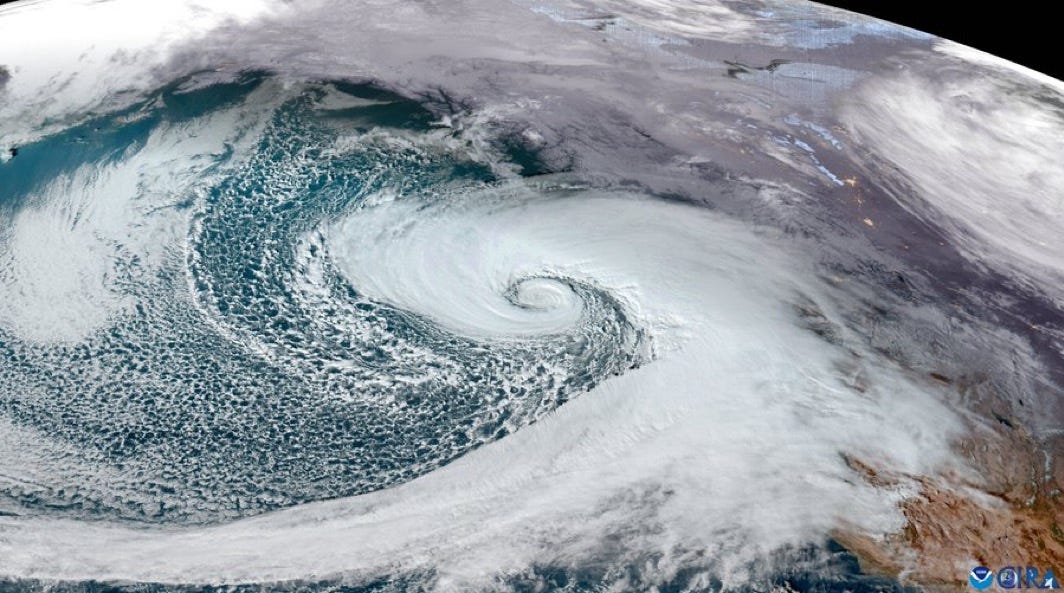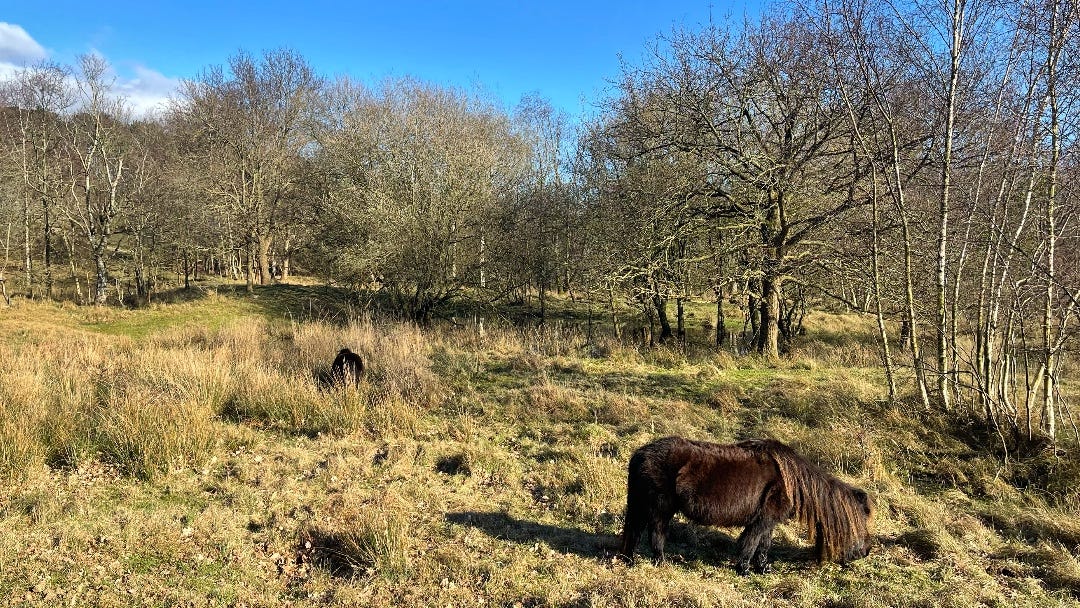It can be stormy on the islands of Zeeland, the southwest island province of the Netherlands. I live close to the North Sea coast, and while I type these first words, I see a storm field passing our island with thunder and wind gusts of up to 120 km per hour. My old car gets bombarded with hail, and the alarm goes off. While typing, a message pops up on my screen: "A "bomb cyclone" over the Pacific Ocean is expected to bring days of damaging winds, rainfall, and blizzards to Northern California, Oregon, and Washington.
While I fear for tiles being blown off the roof, I read about this season's first atmospheric river. It is connected to a storm system over the northeastern Pacific that reached the lowest barometric pressure reading ever recorded in that part of the ocean.
That brings me to the word I have often used in the past years when discussing climate change: "record-breaking." While 'my' storm in Zeeland is likely just weather (maybe with a slight boost from climate change), breaking a record is not normal. But worldwide climate records are now being broken at record-breaking speed.
Week 11 (March 11-17, 2024)
Record-breaking climate change was a theme in several publications in mid-March, which is my bridge to week 11 of this year. It is the 11th day of my 52-day challenge to inform or remind you about the news each week of the past year. In week 11, some journalists started to question whether the extreme temperatures measured worldwide were in line with previous predictions by climate scientists.
As I noted two days ago, in my daily-weekly overview of week 9, the anomalies in the global surface temperatures were so extreme that it didn't require an expert to get even more worried than before about climate change. I shared a graph showing a remarkable rise in world surface temperatures for the past nine months.
In March, the heat above the oceans remained far higher than you would expect during a weakening of El Niño. In week 11, The Guardian asked if these anomalies align with predicted global heating patterns or represent a concerning acceleration of climate breakdown. The newspaper found that well-known climate scientists were divided. Some stated that the trends were within climate model projections, while others were perplexed and worried by the speed of change because "the seas are the Earth's great heat moderator and absorb more than 90% of anthropogenic warming."
As promised at the start of this series, I'll share some photos of what I saw in week 11. I haven't experienced extreme weather, but I have pictures taken in Paris and on my island.
Many of my readers are in the US, and this photo illustrates an alternative way of organizing a city. It shows an early morning on one of the many squares in Paris. There are no cars in this photo; instead, there are trees, a bandstand, children playing, and preserved historic buildings. Life is pleasant in this city, especially now that the municipality has drastically cut back the use of cars; bicycles have taken over where once there were permanent unhealthy traffic jams.
Spot the photographer in this selfie.
Sometimes, photos are better in black and white. I often prefer them to stress architectural lines or to remind viewers of a historical connection. This photo has both, hence the black-and-white version.
Back home, Luna was happy to see me again.
Spring had yet to start officially, but nature didn't wait until March 21.
I often ran or walked in this area, hoping to spot some of the semi-feral Shetland ponies.
Then, there is this image to end with, which links back to where I started tonight: extreme weather in Zeeland. This picture shows the St. Elisabeth Flood of 1421, one of the worst floods in the Netherlands' history. We remembered it yesterday since it occurred on November 19.
It reminds us of our vulnerability in this country, which has large land areas below sea level. But we adapted to the harsh conditions and created a water infrastructure that has kept my generation safe from these massive floods. On a stormy evening like this, I think about the forces of nature that have shaped the history and geography of these islands. In the future, we will have to deal with higher sea levels and a higher surge during stronger storms. The battle against the floods has been won, but not forever. The game's rules have been changed, and we need further adaptations to keep us safe.
Please join the chat and view or share more stories, photos, and memories of week 11 of 2024:
Did you know that clicking on the ❤️ at the bottom or the top of this post will help others discover my publication? You can also share it with others. The best way to support my work and not miss anything is by subscribing to this newsletter.
















Record-breaking events then. Record-break events today. Love that image of Luna, of course. Be safe.
Everything is record-breaking nowadays, there's nothing normal any more.
Thank you Alexander for reminding us of the reality we are living in.
I still try and write about good things...